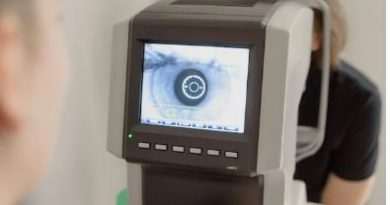Pelvic Floor Dysfunction in Women: Overview, Symptoms, Diagnosis, and Treatment
Many women experience the symptoms of pelvic floor dysfunction, which manifests in painful, embarrassing symptoms. Pelvic dysfunction is essentially the inability to contract and relax the pelvic floor muscles properly. The pelvic floor is a group term for the group of muscles in the pelvic area that supports the organs therein, (bladder, uterus, and rectum) and promotes the functions of the rectum and vagina.
Causes of pelvic dysfunction
While most causes of pelvic dysfunction remain unknown, the biggest culprits are the strain caused by vaginal childbirth, constipation and being overweight. Other studies point to learned behavior that causes these muscles to coordinate their activities incorrectly. Other causes include having weak connective tissues that predispose them to pelvic organ prolapse, deficiencies in collagen, treatment of gynecological cancers, and menopause.
Symptoms
The biggest indicators of pelvic floor dysfunction would be leakage of stool and urine. This may be experienced right before you visit the bathroom, laugh, cough, or do some strenuous lifting. Other symptoms include:
- The urge to have many bowel movements within a short time
- Frequent need to urinate and experiencing pain as you pass urine
- Pain in the lower back or pelvic area, genital area and rectum
Painful sex - The feeling that you cannot complete a bowel movement, or straining pain and constipation
- Uncontrollable passing of wind
- Organ prolapse: this is where the organs in the pelvic area protrude through the rectum.
All these symptoms can be very uncomfortable, and you need to see a doctor. Do not self-medicate, as these symptoms can also be indicators of something serious. Only a complete pelvic exam can pinpoint the real culprits and set you on the path towards relief.
Diagnosis
The doctor will ask a series of questions which will help determine the primary cause of the dysfunction. They may ask whether you’ve ever had UTI, irritable bowel syndrome, interstitial cystitis or pain during intercourse.
The doctor may also check your ability to control your pelvic floor muscles and their ability to contract and relax using their hands. They will check for knots, weaknesses or spasms.
Other more specific tests include:
- Anorectal manometry: this test will check the function, pressures, muscle strength and coordination of the anal sphincter (the valve at the anus’ opening) and rectum.
- Uroflow test: this test is done if your main issue is in passing urine. This test is done as you pass urine to determine the strength of flow.
Treatment
Over 70% of patients with pelvic floor dysfunction obtain relief from physiotherapy. A pelvic floor physiotherapist will provide you with a non-surgical, painless series of therapy sessions that will help restore proper muscle coordination. Safe pelvic floor exercises like Kegels may be recommended by your physical therapist to strengthen the pelvic floor muscles. Your physiotherapist will help you train your pelvic floor muscles to better support the organs by doing the right kind of Kegels and other exercises. Know more about how Kegels help with pelvic organ prolapse and bladder leakage.
Medication
Your physician may prescribe a muscle relaxant for pelvic dysfunction
Relaxation techniques
Your doctor or physiotherapist may recommend a series of simple relaxation techniques like yoga, warm baths, and meditation.
Surgery
Your doctor may have to use surgery to correct rectal prolapse due to pelvic floor dysfunction.
Conclusion
Pelvic floor dysfunction is readily treatable through physiotherapy, exercise, and medication. Seeking a doctor’s advice is the first step towards overcoming this condition.



